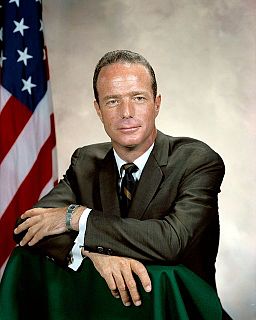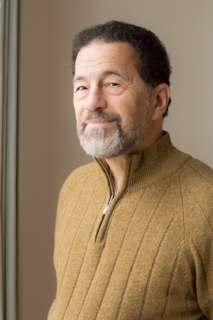A Quote by Leroy Chiao
The only two countries who will be able to launch people into space will be Russia and China. I've seen the Russian technology up close and I've had a chance to look at some of the Chinese technology. It's a very high level. They have good hardware and what China lacks is operational experience. But as they gain more experience, as they fly more missions, they'll catch up quickly. The U.S. does face the possibility of losing the lead in human space flight during this period of what we call the gap.
Quote Topics
Able
Call
Catch
Chance
China
Chinese
Close
Countries
Does
Experience
Face
Flight
Fly
Gain
Gap
Good
Had
Hardware
High
High Level
Human
Lacks
Launch
Lead
Lead In
Level
Look
Losing
Missions
More
Only
Operational
People
Period
Possibility
Quickly
Russia
Russian
Seen
Some
Space
Space Flight
Technology
Two
Two Countries
Up
Very
Will
Related Quotes
If we're not able to launch our own people and operate our own spacecraft anymore then, you know, space - whether it should be or not, it's seen as like a harbinger of technology. If you can fly people into space, if you can operate into space, then you've got high technology and if you're the leader of that, then you're the leader in technology. If we lose that on a more or less permanent basis, or for a long period of time, my fear is that it will creep into the national psyche in all areas and we as a nation as a whole will kind of be diminished.
Cooperating in something as visible as space exploration and space flight can only improve relations between the two countries because what happens is, you're working on a common project in a very visible light and so, you're motivated to not have conflicts with each other in other areas. And bringing up China is a good example. In the early '90's, China got serious about wanting to launch astronauts into space and they were actually quite successful in launching many communication satellites. They went ahead and in 2003 they launched their first astronaut into space.
The United States, Russia, and China are the only three countries in the world that can launch astronauts into space. Mostly in the U.S. you see some companies trying to launch private commercial people into space, but nobody's done it yet. The only private vehicle that's made it into space so far is Spaceship 1 in 2004, and that was an effort that was funded by one of the Microsoft founders, and he spent about $20 million to develop this spacecraft to do a sub-orbital flight. And it's not the same as going into orbit, but it was a huge first step.
We were trying to do as much science as we could because that was the main purpose of the international space station. But without the shuttle to bring up heavy laboratory equipment and bring back samples, we were limited by what we could do, but I was proud that we actually accomplished more science that was planned for the flight. And I got a chance to do two Russian spacewalks on that flight, I had become an expert in U.S. spacewalks and using U.S. suits and techniques, and this was a chance to put on a Russian Orlan suit and do two construction space flights outside of the space station.
China, the world's most populous country, 1.3, 1.4 billion people, will in the next decade or so have to begin looking for people outside of China.What does this mean? China will have to become a much more welcoming society. It means that China will have to attract immigrants from other countries in order to slow the aging of the population.
We will eventually build space science labs and hotels, prodding the capability for missions beyond the orbit of the Earth. Our space-hotel guests will be able to take breath-taking excursions, flying a couple of hundred feet above the Moon's surface in small two-man spaceships. In time, we will launch missions to Mars and beyond.
The space station mission was kind of the culmination of all of my experience of being a NASA Astronaut, so it had brought all of my previous experience into play. I had to learn the Russian language to a fluent level so that I could function as the co-pilot of the Soyuz Spacecraft that we flew up and back from the space station. And then the challenge of being the Commander of the whole expedition, a six and a-half month flight aboard the international space station. I felt the burden of the whole mission on my shoulders, which was fine, and fortunately everything did go well.
In 2006, I became the fist American to be allowed to go visit their astronaut center in China in Beijing. I think that it makes sense for the U.S. to work with China in the future and I hope to see, if the political atmosphere between the United States and China allow for us to do more cooperation together, especially in the area of human space flight. I think in the same way that it's help improve the relations between the U.S. and Russia; it would help to improve the relations between the U.S. and China.
Specifically in reference to Iran, Donald Trump will not be able to renegotiate the nuclear arms pact. His attempt to do so will alienate all the European powers involved and will cost a number of US companies some very lucrative contracts. It is a losing proposition for him and for the US. Much more so than for Iran, who will turn more and more to Russia and China as trading partners.
The Americans are still the leaders in human space flight. I feel we have a danger here of kind of stagnating. We're kind of resting on our laurels and there's a danger going forward if we don't take bold steps to really support human space flight in this country that we could fall behind. After the space shuttle is retired, we're going to have a big gap, five to seven years, at least where we're not going to have the ability to send our own astronauts into space, we'll have to buy rides on the Russian Soyuz, and so that will be a pretty big step down for us.
Absorbing foreign capital and technology and even allowing foreigners to construct plants in China can only play a complementary role to our effort to develop the productive forces in a socialist society. Of course, this will bring some decadent capitalist influences into China. We are aware of this possibility; it's nothing to be afraid of.


























